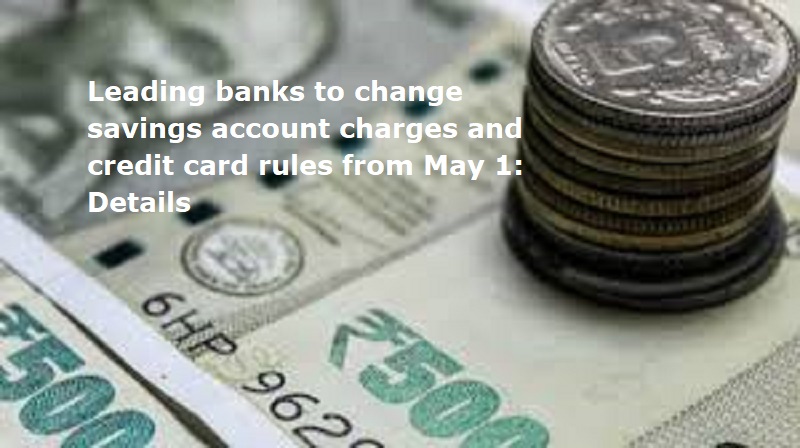
Mumbai: Several major banks in India have decided to change their savings account charges and credit card rules. The new rules will came into effect from May 1, 2024.
Leading private sector lender, ICICI Bank will implement revised service charges for various savings account transactions starting May 1, 2024. These changes affect services such as cheque book issuance, IMPS transfers, ECS/NACH Debit Returns, and stop payment charges, among others.
Here’s a breakdown of the revised charges:
Debit card annual fees: Rs.200 per year. For Gramin locations, it is Rs.99 per year.
Cheque books: The first 25 cheque leaves are provided free annually; Rs.4 per leaf thereafter.
DD / PO – Cancellation / Duplicate / Revalidation: Rs.100 per instance.
IMPS – Outward:
Up to Rs.1,000: Rs.2.50 per transaction.
Above Rs.1,000 to Rs.25,000: Rs.5 per transaction.
Above Rs.25,000 to Rs.5 lakhs: Rs.15 per transaction.
Account closure: No charge.
Debit card PIN regeneration charges: No charge.
Debit card de-hotlisting: No charge.
Balance certificate, interest certificate: No charge.
Retrieval of old transactional documents / Enquiries related to old records: No charge.
Signature attestation: Rs.100 per application/letter.
Address confirmation: No charge.
ECS / NACH debit returns: Rs.500 per instance for financial reasons. A maximum of 3 instances per month will be charged for the same mandate.
National automated clearing house (NACH) mandate. One-time mandate authorisation charges (Physical): No charge.
Lien marking and unmarking of savings account: No charge.
Reissue of internet user ID or password (Branch or non IVR customer care): No charge.
Address change request at branches: No charge.
Stop payment charges for a particular cheque: Rs.100 (Free through customer care IVR & Net banking).
YES Bank has made changes to its credit cards, affecting the fuel fee category on some card types. Starting from May 1, 2024, using a YES Bank credit card to pay gas, electricity, and other utility bills will become more expensive.
Also Read: Mercedes-Benz unveils 2025 E-Class LWB: Details
A 1% charge will apply to all utility transactions within a statement cycle. If a Yes Bank credit card is used to pay bills exceeding Rs 15,000 in a single statement cycle, GST and a 1% tax will be added.However, payments made with the Yes Bank Private Credit Card will not incur this additional fee.
IDFC First Bank will apply an additional charge of 1% plus GST if your total credit card payments for utility bills exceed Rs 20,000. This extra charge does not apply to the FIRST Private Credit Card, LIC Classic Credit Card, and LIC Select Credit Card.

Post Your Comments